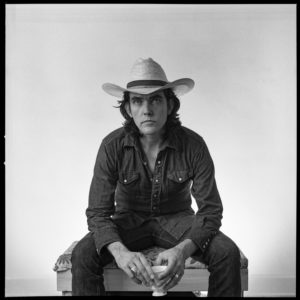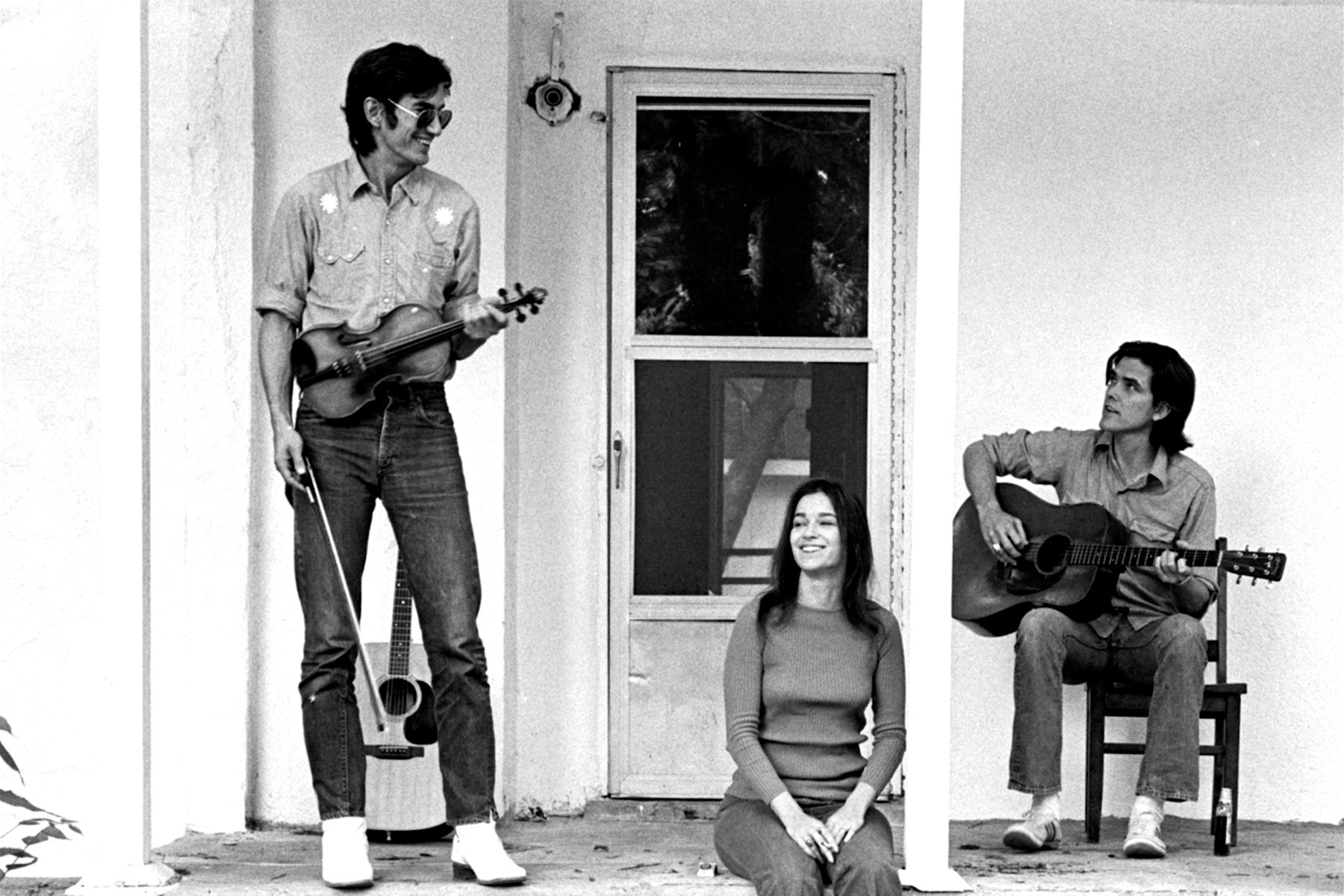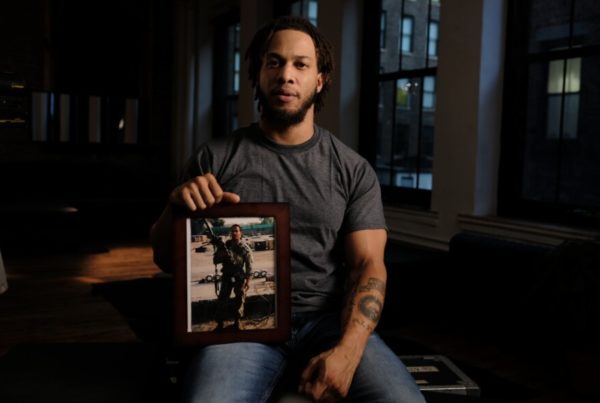The audio diaries of folk singer-songwriter Guy Clark’s wife, Susanna, invite viewers of a new documentary into some of the most intimate parts of the couple’s lives – including their unusual and transformative relationship with fellow artist Townes Van Zandt.
Guy Clark is best remembered as the writer of songs such as “L.A. Freeway” and “Desperados Waiting for a Train”. But his path towards fame was winding and, until recently, little known.
Tamara Saviano coproduced and codirected the film “Without Getting Killed Or Caught”. It’s based in part on her book of the same name. But access to the audio diaries and archival photos and videos reveal even more about the Clarks’ journey as creators. The film is now available for streaming.
Listen to the interview above or read the transcript below.
This transcript has been edited lightly for clarity:
Texas Standard: You already had so much knowledge of Guy, based on your research for the book. What were the biggest challenges in trying to convert this into a documentary?
Tamara Saviano: I think the biggest challenge was that I had so much material, and writing a 450-page book is a lot different than trying to tell a story in 90 minutes. And that’s why we decided to focus on the relationship between Guy and Townes and Susanna and how it shaped all of them as artists.
How would you describe that relationship to someone who’s encountering this story, perhaps for the first time?
Interesting, compelling, strange but loving. They all just loved each other and they were in it for the long haul.
These are people that had a lot of flaws, and they were nonjudgmental, for the most part about each other’s flaws and just accepted each other how they were. I find it a really fascinating relationship.
It is. And it seemed like as much as Guy appreciated the creativity and that sort of artistic bent that Susanna certainly had, he also had a deep respect and appreciation for Townes’ own gifts

Guy Clark Photo by Marshall Fallwell
Oh, he did. And Townes was his yardstick. I don’t think he was seeking to be like Townes in any way, but he did seek his approval. And I wouldn’t say they were competitive, but Townes set the bar for Guy. Guy had a lot of great relationships with other songwriters, but none of them were the same as the respect and the admiration and the love that he had for Townes Van Zandt.
You worked with another Texan with a very recognizable voice on this film, Sissy Spacek. Could you tell us a little bit about that process and her involvement?
I feel like Susanna Clark was pulling the strings from the “great beyond,” because one day at breakfast, I just yelled out loud, Sissy Spacek is Susanna, and I just knew it in my core that it had to be Sissy. And then when I started doing research, I found out she was a Texan, which I didn’t know. And she and Rodney Crowell were friends, and she recorded one album for Warner Brothers after she won her Oscar for “Coal Miner’s Daughter.” And on that album is a Susanna Clark song. Wow, the stars just aligned and it was meant to be.
I would guess one of the more challenging aspects of putting together any documentary is coming up with the video elements. What did you have to work with?
Oh, yeah, that was definitely a challenge, because when Guy and Townes and Susanna were running around in the 60s, 70s, 80s and even 90s, we didn’t all have phones with cameras, so there wasn’t a lot of video. We did have all of their photo archives, and we had Susanna’s audio diaries, which are just gold. And we had a lot of help from university archives and other personal archives that helped us with the visuals.
This is as much a Tennessee story as a Texas story. I know you spend your time sort of back and forth, too. Could you say a little bit more about that? I mean, there is a sense of place in this documentary.
Yes. Guy is a dyed-in-the-wool Texan, and he remained that, although he lived in Nashville for 40 years. But the Nashville music business, especially the publishing business, Guy felt he had. Had to be there for that. He had to be able to walk into his publisher’s office and sit down with other writers. That is such a songwriting mecca, so a lot of Texans made their way to Nashville.
I know that some people like to have this competition between the two cities [Nashville and Austin]. I really think that they’re more symbiotic and like sister cities, I love both of them. They have their strengths and weaknesses, but both great music cities by cities.
Fans of Guy Clark are certainly going to appreciate this film, of course. But what do you think those who don’t know his music or may not know his music very well might be able to take away from this documentary. Are there lessons in how we understand artists and fame
I hope that people that see the documentary go and listen to Guy Clark music – that’s the ultimate goal. But I think that art is often not valued as it should be. We now have Spotify and Pandora, and nobody wants to pay for music anymore, and that hurts the artists and the songwriters. And I hope that people do realize how some people have just devoted their life to this art and they deserve to be compensated and they deserve to be treated well for their work. Who knows what’s going to happen with the music business, but right now it’s a lot of question marks.
You’ve devoted quite a lot of your life to to sharing the story of Guy Clark. What is it about Guy Clark in you?
I wish I knew. 13 years, between a tribute album, a book and the film, I discovered Guy when I was 14, when “Old Number One” came out and it just spoke to me. I don’t really know why. I just always loved him. And then when I moved to Nashville and I got to know him, we just had a great connection and became good friends and worked together. And I love him and I always thought he was underappreciated, and that’s why I decided to go down this path.
Guy was a pretty solitary, private guy. How do you think he would feel seeing this story sort of unfold on the big screen?
I think he would love it, and he was private. But when we started working together on the book, I got the sense from a lot of things. He told me that he really wanted to be known. He had been diagnosed with cancer by then, and I think he was feeling his mortality. And that’s why he dug so deep with me on these stories. And he surprised me every day with the depth that he was willing to go into his own life, and let me showcase it to people. So I think he’d be happy.














